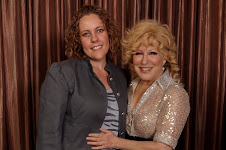
I think I have been typecast at work. My work is fraught with angst and ire between certain people and more specifically, between our department head and several of us. This head is abrasive and loud, mean, and gruff. Her management style is, "Do it because I said so." For teachers, who are used to academic and personal freedom, slavery comes heavy and hard. She has alienated many, including me. Over the winter holiday, I spent much time thinking and working on who I am at work. More specifically, at work,I am seen as someone who speaks her mind, is sarcastic, and energetic. I am also "the devil's advocate." I love to be in meetings and ask about the other side, to question why and how. Being such a person can be good when working with others who like to hear all the options and sides, or it can be bad, for those who feel like questions and ideas are threatening or lessen their influence. At my work, the latter is the case. Still, I have been known to continue, reiterating and advocating to the peril of my ideas and my own sanity. So, after much deliberation and self-reflection, I discovered such issues and spent much time re-figuring a new way of being at work, a positive, helpful, and insightful colleague. No sarcasm, no angst, no un-smiling questions were to be given. My mantras include: I am kind, and generous to those I like and those I am not so sure I like; I can lead AND follow; I am willing to try. I included that I would not gossip, listen to complaining, or be involved with other "talking about bad events/people/things."
I didnt think it was going to be easy to return to a place that had perhaps not had the awakening I had over the break, but I didnt realize how damn hard being typecast is. Within the first day I had been pulled into a stairwell conversation so as not to be overheard, told that I was not as important as another teacher, and made to do something I didn't want to do. But, I held strong. I didnt say a negative thing and I didnt gossip. I listened trapped, but I acknowledged the others' feelings and left on a positive, "Wow. That must have been hard. I know it was for me too," comment. Now, the first week back is over and I am exhausted. Still, there is no change. It is so hard! I dont think my department head sees me any differently and I am afraid that I am typecast to be my old self during every interaction.
I know it is only a week, but it has been 3 years of the same thing, no change. I fear I am typecast and it will never change. How do you move forward when others only experience you as the past? How do you work through typecasting? I know you have had issues with that. Ive heard interviews concerning calls in which you were too Jewish, not Jewish enough, too short or too old. I am too young, too loud, too energetic for an Ivory Tower, too tough, too soft. What do we do? How do you move past being typecast?










